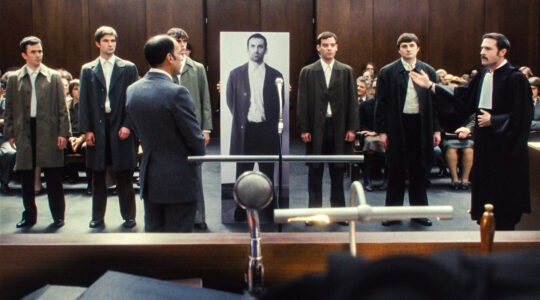
On a revealing interview to “60 Minutes,” awarded filmmaker Steven Spielberg told the story of his childhood, and like most of the characters in his movies, it was anything but perfect.
“I was a nerd in those days. Outsider, like the kid that played the clarinet in the band and in orchestra, which I did,” Spielberg told reporter Lesley Stahl. To make matters even more difficult, Spielberg and his family were the only Jewish family in their suburban Phoenix neighborhood. His mother, Lea, told “60 Minutes” that it wasn’t east for anyone, “People used to chant, the Spielbergs are dirty Jews.”
Young Steven decided to react in a very unique way, “I took Skippy peanut butter and smeared it all over [my anti-semitic neighbor’s] windows.”
But being the outsider Jewish kid left a major mark in Spielberg, “I denied it for a long time, my Judaism. I often told people my last name was German, not Jewish. I’m sure my grandparents are rolling in their graves right now, hearing me say that. But I think that I was in denial for a long time.”
The way to get out was of course, by making films.
Spielberg began making movies in his early teen years, and continued to make classics such as “E.T.,” “Jurassic Park,” “Schindler’s List” and more. All of them, however, had one thing in common, they reflected his childhood, and mostly his parents divorce.
Spielberg revealed how his rocky relationship with his father was translated to his movies, where the dad was either too busy or absent, but in his later work, after the two made peace, the father became the hero.
Spielberg’s newest film, “Lincoln,” tells the story of the 16th president and his fight to abolish slavery, and features Daniel Day-Lewis as Abraham Lincoln, Sally Field as wife Mary Todd and Joseph Gordon-Levitt as oldest son Robert Todd, is set to hit the screens on November 16.
Watch the “60 Minutes” interview here:

Help ensure Jewish news remains accessible to all. Your donation to the Jewish Telegraphic Agency powers the trusted journalism that has connected Jewish communities worldwide for more than 100 years. With your help, JTA can continue to deliver vital news and insights. Donate today.





